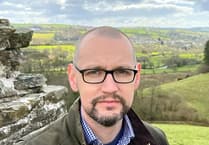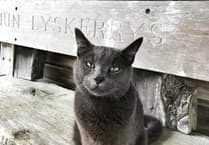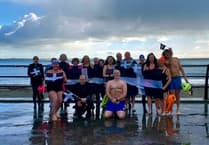CORNWALL will be one of five places in the country to launch a ’Local Nature Recovery Strategy’ – a Government plan to improve and increase the number of wildlife-rich sites across England and help tackle climate change.
While Cornwall will be a pilot for the scheme, eventually, as part of the new Environment Bill, each part of the country will have to establish its own LNRS. This will see a set of maps developed for each county or area, detailing the most valuable existing sites for wildlife, and will lead to 500,000 hectares of wildlife habitat outside of already-protected sites either restored, or created, for example with the creation of wildflower meadows, new woodlands or green spaces.
The project also aims to better link up urban green infrastructure (such as hedgerows, trees, parks, fields and forests) and urban blue infrastructure ( such as rainwater tanks, bioswales, rivers, canals, ponds, wetlands, and floodplains).
DEFRA is investing an initial £1m in the five pilot schemes, and also involved are Buckinghamshire, Northumberland, Greater Manchester, and Cumbria County Council, who will be working to support natural flood management, access to green space, tree planting and peat restoration.
Natural England Chair Tony Juniper said: ’If we wish to have rich and abundant wildlife, more carbon captured in trees, soil and hedges, better protection from extreme weather and enough places for people to gain the wellbeing benefits of good quality green spaces, then we must invest in Nature’s recovery, and at scale.
’National ambitions for Nature’s recovery will need to support local action and today is a significant milestone in doing just this. We look forward to working with our partners in these five areas to create bigger, better and more connected natural places to halt and then reverse the decline in our environment.’
Cornwall is already leading the way, said Natural England area manager Wesley Smyth, having introduced the concept of biodiversity Net Gain, and by initiating a land use planning approach to meeting the challenges of climate change.
Edwina Hannaford, Cornwall Council’s portfolio holder for climate change and neighbourhoods, said: ’Cornwall’s designation as a Local Nature Recovery Strategy area means we can build on our strong track record of working together with communities to help nature and tackle the climate emergency, as seen in our ambitious Forest for Cornwall programme and our award-winning Making Space for Nature project.
’It will enable us to strengthen local partnerships as we continue our work in restoring nature, reducing carbon emissions and protecting and improving the environment for our residents.’
Environment Minister Rebecca Pow said: ’Coronavirus is shining a light on the importance of our natural world, and the positive impact nature can have on our health and well-being.
’These first pilots will be a key part of our green recovery and help kick-start the creation of over a million acres of joined up habitats that people can enjoy across the country.’




